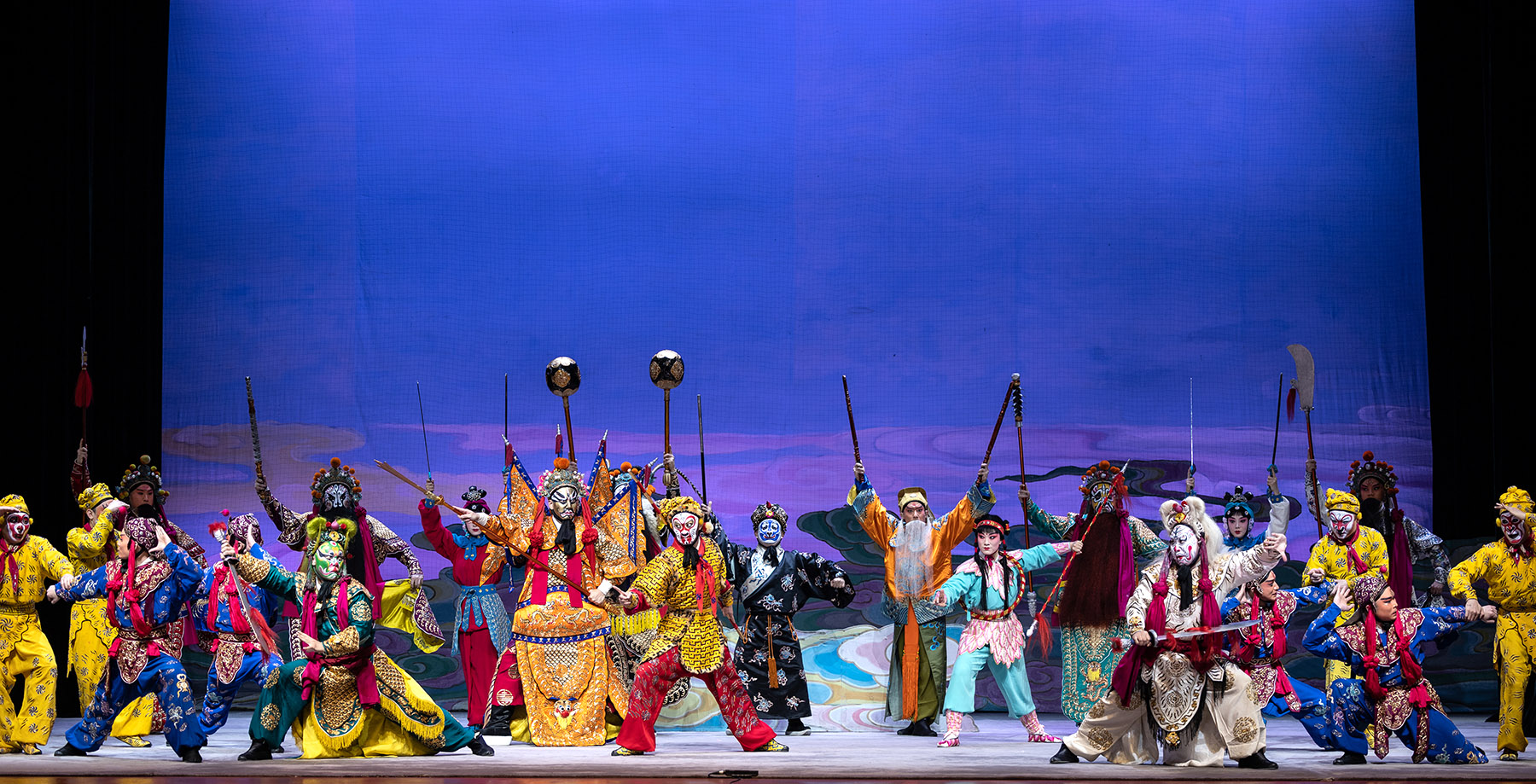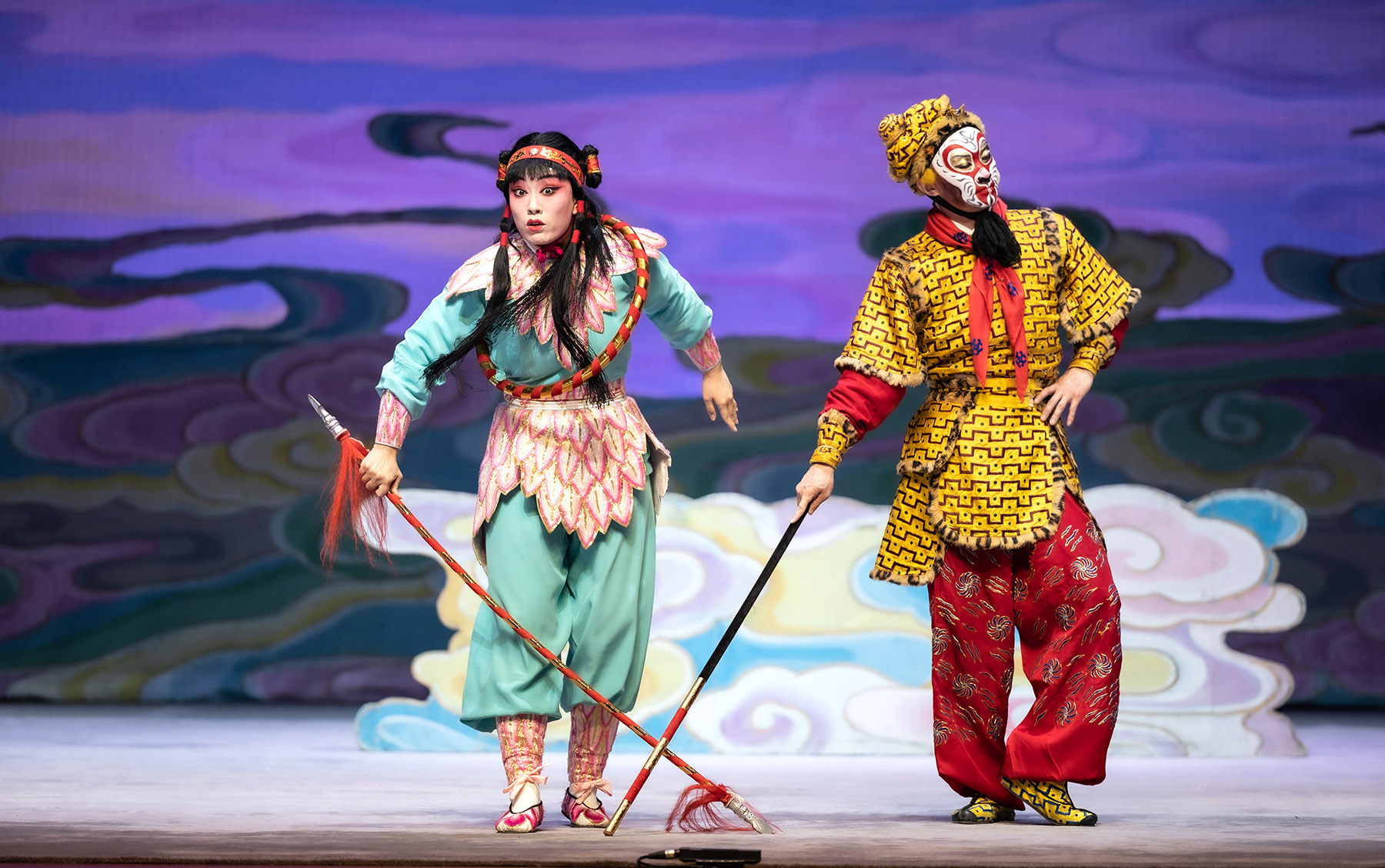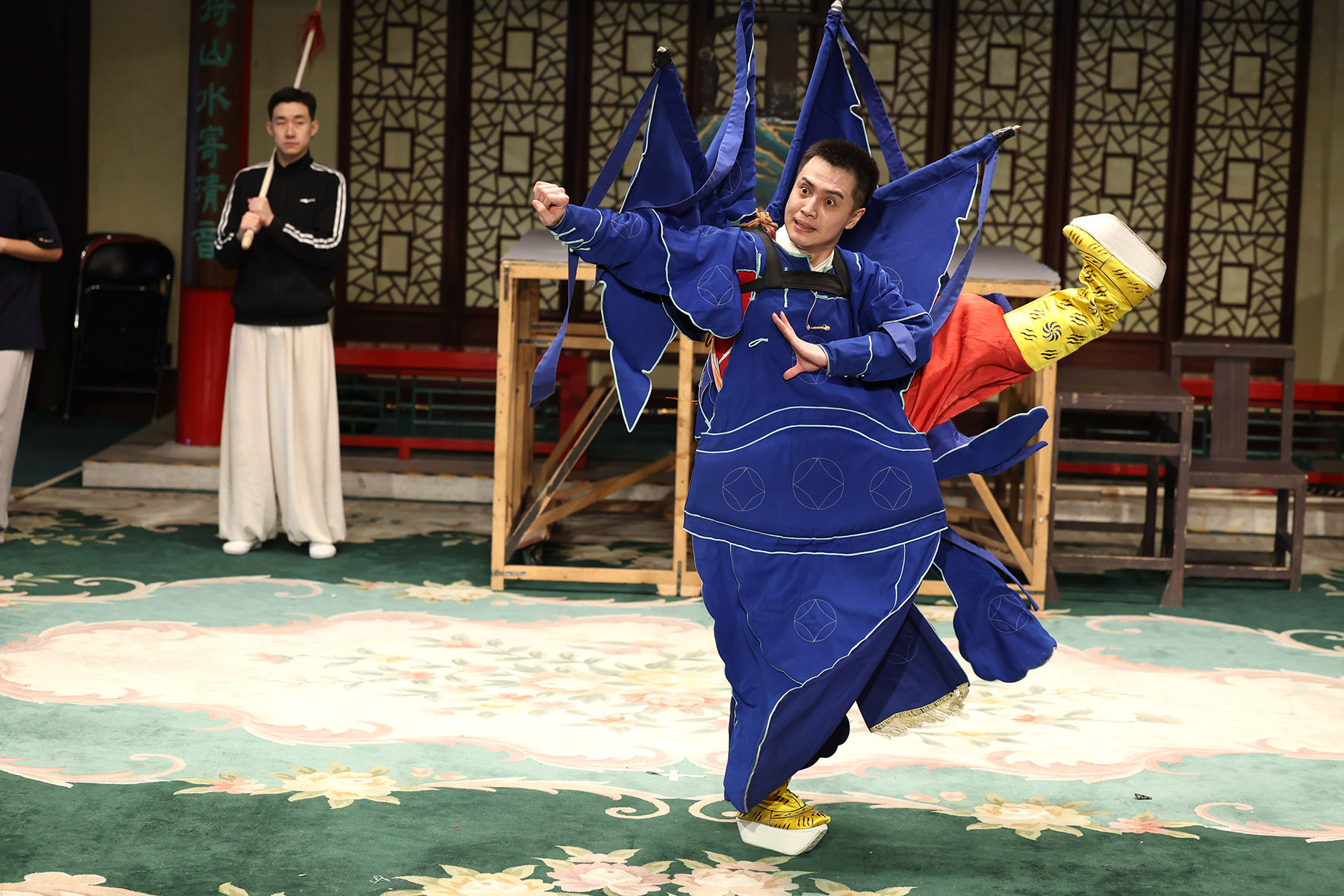Peking Opera adaptation of classic novel gives Sun Wukong a chance to wreak havoc onstage, Chen Nan reports.

As a young boy, Qu Jingda loved playing with his friends in the courtyard of his home. He would grasp a makeshift jingubang, or "golden cudgel" — a long, slender wooden stick — and mimic the deeds of the legendary Monkey King, Sun Wukong.
With each swing, he imagined the world shifting around him, as if his stick was like his beloved hero's magical weapon. In his imagination, it could grow to the size of a mountain, or shrink to the size of a needle, just as Sun Wukong's does in Wu Cheng'en's 16th-century classic Journey to the West.
As he grew into adolescence, Qu began to train as a Peking Opera actor, coming to specialize in the role of wusheng, a male character primarily focused on martial arts. One of his signature roles was as Sun Wukong in the National Peking Opera Company's production of Havoc in the Heavenly Kingdom.
This Friday, he will reprise the role again at the Mei Lanfang Theatre in Beijing.
READ MORE: Peking Opera show puts musical tale center stage
The story of Havoc in the Heavenly Kingdom, which is also known as Uproar in Heaven, follows Sun Wukong as he goes to the submarine Dragon Palace to borrow a weapon. He steals the magical jingubang, leading the Dragon King to appeal to the heavenly court. Sun Wukong is lured to heaven, where a scheme to ambush him leads to him being thrown into a furnace. After burning for 49 days, he evolves, breaking free and causing chaos in heaven. Afterward, he returns to his home on the Mountain of Flowers and Fruits. When he is tricked into returning to heaven, the Jade Emperor, ruler of the heavens, grants him a lowly position as keeper of the horses. Insulted, Sun Wukong refuses and decides to take matters into his own hands, once again rampaging through heaven, causing chaos, and mocking the gods.
"Every time I play Sun Wukong, I am taken back to my childhood, which was a time of wild imagination around this hero. As the music begins — sharp, energetic, and full of intensity — I not only feel the power of the character, but also the power of my own transformation with each swing of the jingubang," says the 35-year-old, who was born in Harbin, Heilongjiang province. Qu came to Beijing to study Peking Opera in 1998 and joined the National Peking Opera Company in 2004.

He says that Sun Wukong is one of the most iconic figures of mythology, and so people have high expectations of any actor portraying him. The Monkey King has a large, dedicated fan base and is loved by audiences, meaning the actor must live up to this legacy.
Qu can still remember when he first began to study for the role, which was very challenging.
"My teachers told me that playing Sun Wukong requires not just physical skill, but also an understanding of his deeper qualities — his rebellious spirit, cunning nature, and the transformation he undergoes," Qu says. "He is not only a fierce fighter and a rebellious hero, but he also has a playful, almost trickster-like personality. The actor must balance these aspects, shifting seamlessly from comedic moments to intense battles and dramatic confrontations with heaven. The timing of these transitions is crucial, as the opera often moves between lighthearted moments and intense action or emotional depth."
Havoc in the Heavenly Kingdom is one of the most popular productions in the Peking Opera repertoire. It appeals to audiences of all ages, says 35-year-old Zhu Lingyu, who is a fellow wusheng actor and also plays the role of Sun Wukong. This Friday, he will share the stage with Qu.
"Peking Opera's bold, colorful costumes and exaggerated facial makeup are a feast for the eyes. Sun Wukong's flamboyant appearance is designed to capture attention, while other characters wear lavish robes adorned with celestial symbols. These visual elements help bring the well-known story to life in a striking way," Zhu says. "Additionally, the blend of humor, moral themes, and philosophical depth ensures that it speaks to a wide audience, making it both entertaining and thought-provoking."
In early 2018, Zhu began to study for the role and a year later, made his debut during the company's tour of Mexico. In 2019, he reprised the role for a tour of Switzerland.
The upcoming performance of Havoc in the Heavenly Kingdom is part of the ongoing celebration of the 70th anniversary of the National Peking Opera Company, one of the top troupes dedicated to the ancient art form.
According to the company, the creation of Havoc in the Heavenly Kingdom began in 1951 with dramatist Weng Ouhong (1908-94) and Peking Opera master Li Shaochun (1919-75). The two artists adapted An Tian Hui, a classic Peking Opera piece based on Journey to the West, into Havoc in the Heavenly Kingdom.

Its success not only made Li, who played Sun Wukong, famous, but also established the production as a classic, which has since been staged by generations of performers.
In 1977, Weng revised the script to highlight Sun Wukong's cleverness, quick wit, and rebelliousness. Peking Opera performers, including Gu Chunzhang and Li Guang, played the role not only in China but also abroad, including in France, Canada, and Japan. Li Guang has been coaching Qu and Zhu for the upcoming performance.
Several other important characters appear alongside Sun Wukong, among them Nezha.
Bai Weichen, a 38-year-old Peking Opera actress, plays the role of Nezha, a powerful, heroic figure who plays a key part in the celestial battle against Sun Wukong.
ALSO READ: Peking Opera company returns after 68 years to captivate Brazilian audiences
Nezha is often depicted as energetic, fearless and loyal. While Sun Wukong is rebellious and mischievous, Nezha represents the traditional martial values of loyalty and duty, often clashing with the Monkey King's defiance of heaven.
"Nezha is often portrayed as a young child, usually in his early teens or sometimes even younger, depending on the interpretation. While the character's youthful energy and playful nature are key to his persona, it is especially challenging for an adult actor to embody the role," says Bai, whose grandfather and father are both Peking Opera performers. She began her training at 13 and came to specialize in the wudan role — a martial arts role for female characters. "I try to capture the character's movements, which are quick, energetic, and playful, and example of the boundless energy of youth. For an adult actor, channeling childlike exuberance while maintaining the character's combat abilities and personality is a challenge."
For Bai, the production is not just a professional endeavor, but embodies a deep emotional connection to a timeless story.
"I look forward to bringing this classic legend to life again. It still resonates with the audience," she says.
Contact the writer at chennan@chinadaily.com.cn



